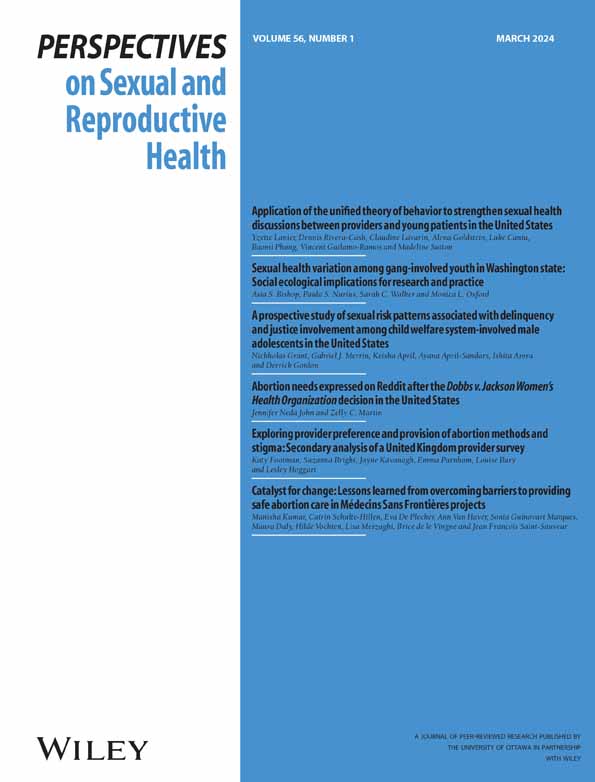Who are the women who relinquish infants for adoption? Domestic adoption and contemporary birth motherhood in the United States.
IF 3.4
2区 医学
Q1 DEMOGRAPHY
引用次数: 3
Abstract
INTRODUCTION The social context of pregnancy decision-making has changed in recent decades in the United States (US), but little research has examined how these changes manifest in the context of infant adoption. METHODS To create an updated profile of US birth mothers, this analysis uses demographic data collected and aggregated from six adoption agencies, with information on 8658 private adoptions that occurred between 2011 and 2020. RESULTS Based on this sample, birth mothers today are older and more racially and ethnically diverse than counterparts in previous generations; a majority have other had children and a substantial proportion were parenting other children at the time of relinquishment. They report living on low incomes and, when considered with other measures (e.g., employment, health insurance, homelessness), seem to lack the economic resources that would give them meaningful power over the options available to themselves and their children. Most birth mothers contact agencies late in their pregnancies or after delivery, at a point when abortion care is likely inaccessible or unavailable. An important minority of birth mothers will relinquish more than one infant for adoption over the course of their reproductive lives. CONCLUSION Given the underlying shift in the demographic profile of women who relinquish infants, it is likely that the underlying circumstances that lead to adoption have also diverged. More research is needed into how women make decisions about adoption; such research carries implications for how best to support women's decision-making and ensure access to needed services throughout pregnancy and beyond.谁是将婴儿交给别人收养的妇女?美国的家庭收养和当代生育母亲。
引言近几十年来,美国的怀孕决策的社会背景发生了变化,但很少有研究考察这些变化在婴儿收养背景下是如何表现的。方法为了创建美国生母的最新档案,该分析使用了从六家收养机构收集和汇总的人口统计数据,以及2011年至2020年间发生的8658起私人收养的信息;大多数人都有其他孩子,相当一部分人在放弃时正在抚养其他孩子。他们报告说,他们生活在低收入中,当考虑到其他措施(如就业、医疗保险、无家可归)时,似乎缺乏经济资源,无法让他们对自己和孩子的选择拥有有意义的权力。大多数生母在怀孕后期或分娩后联系机构,此时堕胎护理可能无法获得。极少数的生母在其生殖过程中会放弃一个以上的婴儿供人收养。结论鉴于放弃婴儿的妇女的人口结构发生了根本性的变化,导致收养的根本情况可能也有所不同。需要对妇女如何做出收养决定进行更多的研究;这项研究对如何最好地支持妇女的决策并确保在整个妊娠期及以后获得所需服务具有启示。
本文章由计算机程序翻译,如有差异,请以英文原文为准。
求助全文
约1分钟内获得全文
求助全文
来源期刊
CiteScore
5.10
自引率
3.40%
发文量
24
期刊介绍:
Perspectives on Sexual and Reproductive Health provides the latest peer-reviewed, policy-relevant research and analysis on sexual and reproductive health and rights in the United States and other developed countries. For more than four decades, Perspectives has offered unique insights into how reproductive health issues relate to one another; how they are affected by policies and programs; and their implications for individuals and societies. Published four times a year, Perspectives on Sexual and Reproductive Health includes original research, special reports and commentaries on the latest developments in the field of sexual and reproductive health, as well as staff-written summaries of recent findings in the field.

 求助内容:
求助内容: 应助结果提醒方式:
应助结果提醒方式:


